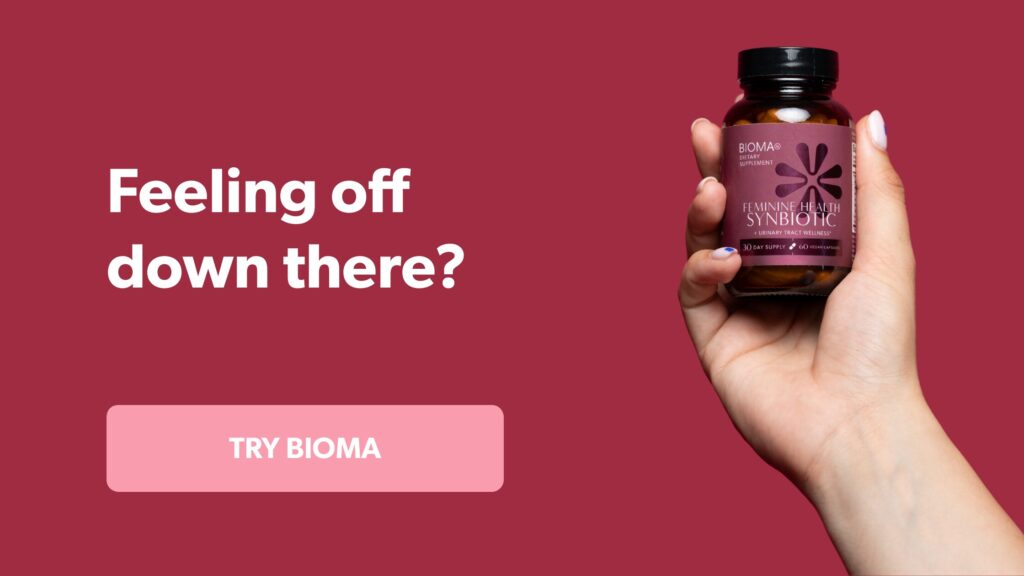What Causes Yeast Infection And How To Get Rid Of It?

A yeast infection, also known as candidiasis, is a common condition that affects many women at some point in their lives. While it may not be discussed often, understanding what causes it and how to get rid of it is essential for managing your vaginal health. In this article, we will explore the primary causes of yeast infections, how to address them, and the role that probiotics can play in supporting your overall vaginal health.

What Is a Yeast Infection?
A yeast infection is an overgrowth of the fungus Candida that naturally resides in small amounts in the vagina. While Candida is typically harmless, certain conditions can cause it to proliferate and lead to an infection. This can result in symptoms such as itching, discomfort, redness, swelling, and unusual discharge. It is crucial to understand that yeast infections are not caused by poor hygiene, though certain behaviors and health factors can trigger or worsen the condition.
What Causes Yeast Infections?
There are several factors that can disrupt the natural balance of the vaginal microbiome and lead to an overgrowth of Candida.
Hormonal Changes
Hormonal fluctuations, particularly those related to pregnancy, menstruation, and menopause, are common culprits behind yeast infections. During pregnancy, for example, elevated estrogen levels can create an environment conducive to Candida overgrowth. Similarly, hormonal changes during menopause, including lower estrogen levels, can also alter the vaginal flora, increasing the risk of yeast infections.
Antibiotic Use
Antibiotics can disrupt the balance of good and bad bacteria in the vagina, which can lead to an overgrowth of Candida. While antibiotics are essential for treating bacterial infections, they can also kill off beneficial bacteria that help keep Candida in check. This is why yeast infections often occur after a course of antibiotics.
Diet and Sugar Intake
High sugar intake can also contribute to yeast infections. Yeast thrives on sugar, and a diet rich in sugary foods can fuel the growth of Candida in the body. This is particularly true for individuals with uncontrolled diabetes, as elevated blood sugar levels can create an ideal environment for yeast overgrowth.
Weak Immune System
A weakened immune system, due to conditions like HIV or cancer treatments, can make individuals more susceptible to yeast infections. When the immune system is compromised, the body may struggle to keep Candida growth in check, leading to infections.
Tight-Fitting Clothing and Synthetic Fabrics
Wearing tight-fitting clothes or underwear made of synthetic fabrics like polyester can trap moisture and create an environment where yeast can flourish. It’s important to wear breathable fabrics like cotton and avoid overly tight clothing, especially during hot, humid conditions.

How to Get Rid of a Yeast Infection
Treating a yeast infection typically involves antifungal medications, which are available in the form of creams, ointments, or oral tablets. However, there are several natural ways to help prevent and manage yeast infections as well.
Antifungal Treatments
The most common treatment for yeast infections is antifungal medications, which can be prescribed by a healthcare provider or purchased over the counter. These treatments work by targeting the Candida cells and reducing the infection. It’s essential to follow the prescribed course of treatment, even if symptoms improve before completing the medication.
Dietary Changes
Cutting back on sugary foods can help reduce the chances of developing a yeast infection. A diet rich in fruits, vegetables, whole grains, and lean proteins supports overall immune health and can help prevent an overgrowth of Candida. Including more fiber in your diet also helps promote a healthy digestive system, which can support a balanced microbiome.
Probiotics for Vaginal Health
Probiotics play a crucial role in maintaining a healthy vaginal microbiome. Vaginal health probiotics can help replenish beneficial bacteria, particularly Lactobacillus species, which naturally help protect against yeast overgrowth. When taken regularly, probiotics can help restore balance to the vaginal flora and prevent future infections.
For women experiencing recurrent yeast infections, Bioma Probiotics for Women provides a carefully formulated blend of probiotics to support vaginal health. These probiotics are designed to replenish the healthy bacteria that may have been lost due to antibiotics, hormonal changes, or other factors.

The Role of Probiotics in Preventing Yeast Infections
The link between gut health and vaginal health is becoming increasingly well-established. Lactobacillus bacteria, which are commonly found in probiotics, are key players in maintaining a healthy balance in the vagina. These beneficial bacteria produce lactic acid, which helps keep the vaginal pH level low and creates an environment that is inhospitable to harmful bacteria and yeast.
Probiotic supplements for women have been shown to help reduce the frequency of yeast infections by promoting a healthy balance of vaginal flora. They can also assist in restoring Candida levels to normal after antibiotic use or hormonal changes. In addition to oral supplements, consuming probiotic-rich foods like yogurt, kefir, and sauerkraut can also support the growth of healthy bacteria.
When to See a Doctor
While yeast infections can often be treated at home, it’s important to consult a healthcare provider if:
- You’re experiencing recurrent infections (more than four times a year).
- Symptoms don’t improve after self-treatment.
- You’re unsure if you have a yeast infection or another condition with similar symptoms.
- You’re pregnant, as some antifungal treatments may not be safe during pregnancy.
A healthcare provider can confirm the diagnosis and provide the appropriate treatment, ensuring that your symptoms are properly addressed.
Preventing Future Yeast Infections
Once you’ve treated a yeast infection, it’s important to take steps to prevent future occurrences. Regularly consuming probiotics for vaginal health, maintaining a balanced diet, avoiding excessive sugar intake, and practicing good hygiene habits can all contribute to maintaining a healthy vaginal microbiome.
In addition, wearing breathable cotton underwear, avoiding tight-fitting clothing, and staying hydrated can help reduce the risk of yeast infections.
Scientific Studies on Yeast Infections and Probiotics
There is increasing scientific evidence supporting the use of probiotics for preventing and managing yeast infections. A study found that oral probiotics, particularly Lactobacillus strains, significantly reduced the recurrence of Candida infections in women prone to recurrent yeast infections. The research suggests that probiotics could be a natural and effective intervention for managing the imbalance in the vaginal microbiome and preventing yeast overgrowth.
Another important research examined the role of probiotics in reducing Candida infections in women, including those with recurrent episodes. It was found that Lactobacillus supplementation led to a decrease in vaginal pH and the restoration of a healthy vaginal microbiome, which played a crucial role in reducing the growth of Candida and related symptoms. This research supports the use of probiotics as an effective adjunct treatment for managing vaginal yeast infections.
These studies demonstrate the potential of probiotics in not only treating but also preventing recurrent yeast infections, by restoring the balance of the vaginal microbiome and reducing Candida overgrowth.

Maintaining a Healthy Vaginal Microbiome for Long-Term Wellness
Yeast infections are a common concern for many women, especially as they age or undergo hormonal changes. While antifungal treatments are effective, maintaining a healthy vaginal microbiome through probiotics for women and lifestyle changes can help prevent recurring infections. If you’re looking for targeted support, Bioma.health offers a blend of strains specifically designed to support vaginal health and reduce the risk of yeast infections.
By adopting a balanced approach to diet, hygiene, and gut health, you can keep your microbiome in harmony and support your overall vaginal health.
Related articles






